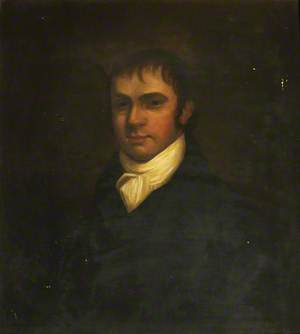William Ward (1769-1822)
Artist unknown

William Ward was a printer, a writer and missionary to India. He formed one part of the Serampore trio alongside Joshua Marshman and William Carey, building a school in Serampore and preaching the Gospel.
He was born in 1769 in Derby, and, although he did not get up early in the morning, became a successful printer and newspaper editor with his quick thinking and writing. He had a passion for social justice and reform that showed in the anti-slavery slant of some of his editing work and his connection with dissenters. Around 1791 when he became a Baptist, this radical streak was redirected into missionary work and has been glossed by Baptist publications ever since. In 1933, after a request from Carey, Ward followed him to India to run the printing press. Over twenty bible versions were produced and shared in various Indian languages and dialects. He did not lose his passion for change, in 1801 he was arrested while on tour preaching for disrupting the caste system. He died suddenly in 1823 while still in India.
The impact of Ward’s life and works are heavily tied to the impact of British colonial rule, for example in Account of the Writings, Religion, and Manners of the Hindoos. This work is steeped in the reductive and offensive language attached to colonial rule, and is, in essence, an example of cultural imperialism. Yet, Ward does show a respect for the achievements of Hindu scholars and rather than enforcing English, he and Carey both made efforts to work with, and alongside, their cultural norms.